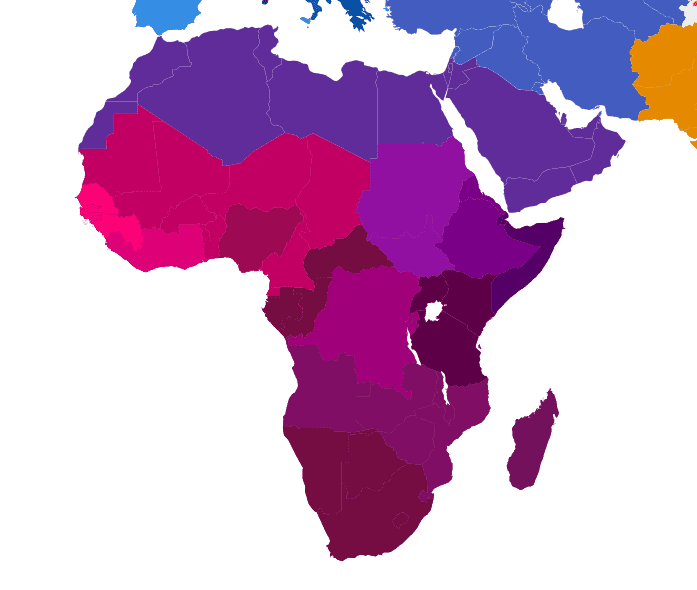A new study led by scientists who are part of the Global Parkinson’s Genetic Program has revealed important insights into Parkinson’s disease among people of African and mixed African ancestry, which has been largely unexplored until now.

Global Parkinson’s Research
The Global Parkinson’s Genetic Program includes scientists working at dozens of institutions worldwide. This includes researchers at 23andMe as well the Nigerian Parkinson Disease Research Network, which includes universities and hospitals across Nigeria. In addition, the Global Parkinson’s Genetic Program includes scientists who are part of the Black and African American Connections to Parkinson’s Disease Study (BLAAC PD) study group. Scientists at the NIH, the Michael J. Fox Foundation, the University of Lagos in Nigeria, and University College London as well as a half dozen hospitals and universities in the United States are part of this group.
“This is proof of principle for the Global Parkinson’s Genetics Program showing that increasing diversity and inclusivity in genetics studies can efficiently deliver novel insights,” said Dr. Sara Bandres Ciga, staff scientist at the NIH’s National Institute on Aging.
African Research Institutions
Published in the journal Lancet Neurology, the research represents the first genome-wide association study of Parkinson’s disease in African and African admixed populations.
The Global Parkinson’s Genetic Program draws together data from existing research cohorts, then makes that data available for genetic research into Parkinson’s disease, making work like this possible.
“As researchers and clinicians, our shared responsibility is to make sure Parkinson’s science is representative of all communities around the world,” said Njideka Okubadejo, MD, Professor of Neurology at the University of Lagos, College of Medicine. “This GBA1 result is a step toward that future, where the research field is prioritizing, learning from, and treating all people with Parkinson’s disease.”
A Novel Variant in GBA1
The research identified a novel signal at the GBA1 locus associated with a higher risk for Parkinson’s disease among people of African descent.
The top variant and potential functional variant is much rarer in people who do not have African ancestry. Although the gene GBA1 is known to be associated with Parkinson’s disease in other populations through coding variation, it is thought that this variant influences the expression of the gene and the production of glucocerebrosidase, an enzyme also known as GCase. A deficiency in this enzyme is characteristic of the rare genetic disorder Gaucher disease, which can lead to such things as an enlarged liver or spleen and bone abnormalities. In this case, it appears to impact how Parkinson’s develops in people with African ancestry. This single variant changes the expression of the gene GBA1, which results in decreasing levels of the GCase enzyme.
The study provides some critical insight into disease risk. This novel mechanism may hold promise for potential RNA-based therapeutic strategies, but researchers also believe the new study could inform future GBA1 clinical trials, improving patient stratification.
“Understanding the genetic landscape of diverse populations is not just a nod to inclusivity, but a scientific necessity,” said Mary B. Makarious, a predoctoral student working at the National Institute on Aging and a co-author of the study. “Unraveling these genetic factors, such as the variant in the GBA1 gene in people of African descent, offers us novel avenues to explore not just for disease prevention, but also for the development of targeted and potentially more effective treatments. Every discovery like this brings us closer to a more comprehensive understanding of this disease.”
According to researchers, African admixed populations offer unique opportunities for studying the genetics of both monogenic and complex diseases. This is because these populations contain the world’s largest portion of genetic variability.
Led by researchers at the Global Parkinson’s Genetic Program, work on the study included contributions from scientists at 23andMe and researchers across Africa. The work was supported by the Global Parkinson’s Genetics Program, funded by the Aligning Science Against Parkinson’s initiative, and implemented by The Michael J. Fox Foundation for Parkinson’s Research.
The study included data from just under 196,000 23andMe customers with African admixed ancestry who consented to participate in research.




